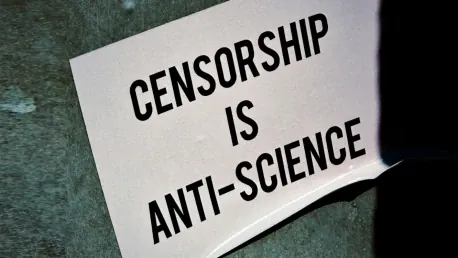The Trump Administration’s antagonistic stance towards scientific research and integrity was evident through its systematic efforts to censor scientific information and undermine the scientific community. These efforts included effective shutdowns of notable institutions, cuts in research funding, and the dismissal of scientific advisory boards. The administration regarded scientific findings as threats to its ideological aims, leading to substantial erosion of the American scientific inquiry foundation.
Undermining Public Health Initiatives
Among the most affected institutions were the National Institutes of Health (NIH) and the Centers for Disease Control and Prevention (CDC). The CDC ceased releasing crucial data that had, until then, informed public health policies and initiatives. In tandem, the NIH announced significant cuts to research grants, stalling the progression of various studies vital to understanding and combating diseases. These actions translated to gaps in the research necessary to prevent and treat illnesses, thereby hampering efforts to safeguard citizen health.
Similarly, the Environmental Protection Agency (EPA) saw substantial dismantling of its research office under executive directives. The EPA reconsidered crucial climate change findings, directly threatening environmental interventions aimed at combating global warming. Scientific advisory boards faced widespread dismissals, strikingly reducing expert input on environment-related policies. The removal of essential tools and databases related to pollution and public health risks further weakened the agency’s capacity to uphold its mission of environmental protection.
Sanitation of Scientific Information
The administration’s attempts to sanitize mentions of climate change on official websites demonstrate an alarming trend. By editing or completely removing references to climate change, the administration sought to realign public perception with its ideological stance, fundamentally restricting access to scientifically-backed information. This act of censorship undermined public understanding of environmental changes and stifled necessary discourse on global warming and pollution.
The broad pattern of these measures reflected an era where scientific findings and research were considered adversarial to the administration’s political goals. The implications were far-reaching, affecting public health policies, environmental interventions, and the credibility of American scientific institutions. Removing or altering scientific data compromised the safety and well-being of the populace and the accuracy of environmental forecasts essential for policy-making.
Long-Term Consequences for American Science
The Trump Administration’s antagonistic stance towards scientific research and integrity was starkly evident through its systematic efforts to suppress scientific information and weaken the scientific community. Actions taken included effective shutdowns of key research institutions, significant cuts in funding dedicated to scientific studies, and dismissals of critical scientific advisory boards. The administration viewed scientific findings as threats to its ideological goals, resulting in a substantial erosion of the foundation of American scientific inquiry. This adversarial approach undermined the role of science in policy-making and public discourse, leading to long-term consequences for the nation’s progress in innovation and knowledge. By disregarding scientific expertise, the administration created an environment of skepticism and distrust towards scientific research, ultimately hindering the pursuit of truth and advancement in various fields. The cumulative effect was a notable degradation of scientific integrity, jeopardizing America’s global leadership in science and technology.









